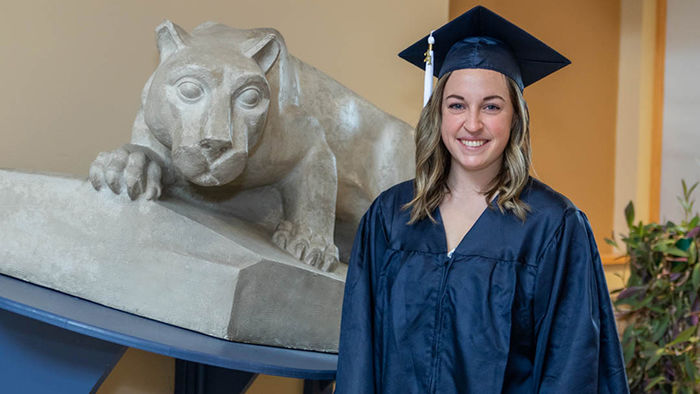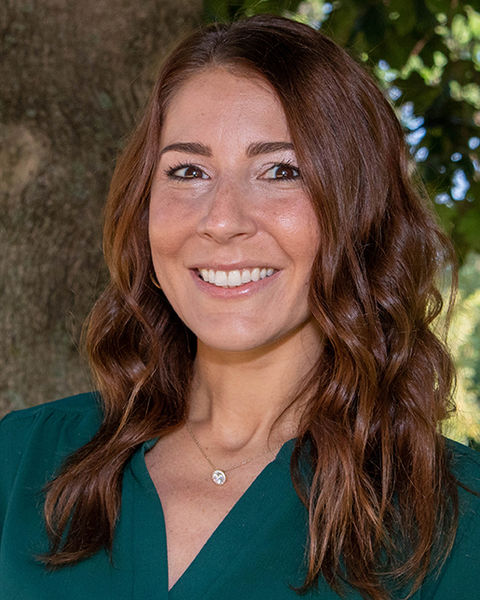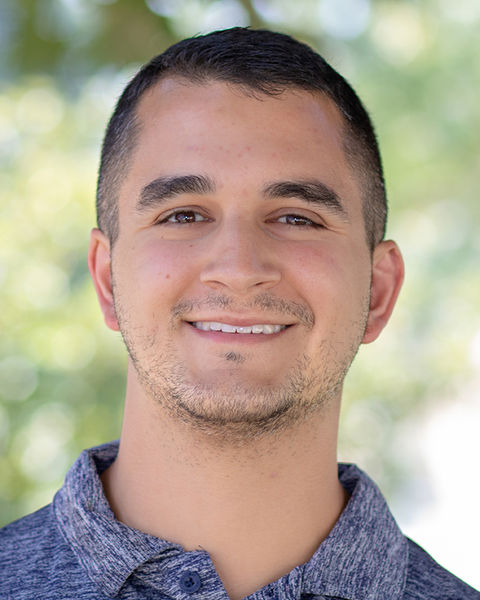Update: Penn State Shenango is not currently enrolling new students. Current students can access academic advising and degree planning through campus services.
Get started in health care’s most creative career
Learning, playing, working, resting, and caring for yourself are considered occupations of life, but a physical or psychological challenge may hinder you from participating fully in activities you enjoy.
The goal of occupational therapy is to enable the client to be as independent as possible in the daily performance of self-care, career, and leisure occupations, using interventions or assistive devices. Unlike many inflexible health care careers, occupational therapy pulls from the fields of psychology, biology, and human development to promote health across the lifespan.
In a given day you might assist a stroke survivor to eat independently, create an adaptive billiards cue, or help a young client learn to manage ADHD.
Penn State’s Occupational Therapy Assistant program is accredited, allowing graduates to qualify to take the National Board for Certification in Occupational Therapy (NBCOT) exam and earn licensure. You may access the direct link for the NBCOT Accredited Occupational Therapy Education Program Performance Data on the NBCOT National Certification Exam website.
Program accreditation statement
The associate-degree-level occupational therapy assistant program is fully accredited by the Accreditation Council for Occupational Therapy Education (ACOTE) of the American Occupational Therapy Association (AOTA), located at 7501 Wisconsin Avenue, Suite 510E, Bethesda, MD 20814. ACOTE’s telephone number c/o AOTA is (301) 652-AOTA.
Graduates of the program will be eligible to sit for the national certification examination for the occupational therapy assistant administered by the National Board for Certification in Occupational Therapy (NBCOT). After successful completion of this exam, the individual will be a Certified Occupational Therapy Assistant (COTA).
In addition, all states require licensure in order to practice; however, state licenses are usually based on the results of the NBCOT Certification Examination. Note that a felony conviction may affect a graduate’s ability to sit for the NBCOT certification examination or attain state licensure.
Please visit our Occupational Therapy Assistant Accreditation page for full contact information for all three of these institutions and Penn State Shenango student and program outcomes.
2-year Occupational Therapy Assistant career opportunities
Earning a degree in occupational therapy will provide you with a foundation of knowledge in the physical, psychological, and occupational sciences. Once in the field as a Certified Occupational Therapy Assistant (COTA), you will employ intervention plans that engage clients in maintaining or reclaiming independence.
As an occupational therapy assistant, you’ll learn to treat patients in an ethical, safe, and effective manner under the direction of an occupational therapist. Upon successful graduation from the program, students must sit for and successfully pass the National Board for Certification in Occupational Therapy (NBCOT) national certification examination to practice. Most states also require licensure as a condition for employment.
Career settings for an occupational therapy assistant
- Public and private schools
- Rehabilitation hospitals and centers
- Skilled and intermediate care facilities
- Early intervention programs
- General hospitals
- Home health agencies
- Senior day programs
- Community wellness centers
- Hand therapy clinics
Continuing your education
Occupational therapy assistants also commonly decide to continue their studies and earn a 4-year degree to progress employment opportunities, or peruse graduate study to become an occupational therapist.
What to expect in the 2-year Occupational Therapy Assistant major
Penn State’s Associate of Science in Occupational Therapy program combines a deep knowledge of psychology and biology with the necessary hands-on experience of working with real clients and adaptive devices.
Occupational therapy classes span from young children to older adults, and the appropriate therapies to assist your clients to live their most fulfilling lives.
You will participate in four real-world fieldwork clinical assignments during your final year that will help you develop a strong professional network in the community and gain valuable experience to pull upon once you enter the health care industry.
The size of each entering class is limited so that optimal clinical experiences and practical application situations can be maintained.
After graduating from the program, students must sit for and successfully pass the National Board for Certification in Occupational Therapy (NBCOT) national certification examination to practice. Most states also require licensure as a condition for employment. A felony conviction may affect a graduate's ability to sit for the NBCOT certification examination and obtain licensure.
Realistic occupational therapy settings and tools
Practice occupational therapy concepts in our unique simulations labs that feature a real working kitchen, and a demonstrative restroom, bedroom, and living space. Because Occupational therapy assistants work in a variety of settings, it’s critical that you study in a laboratory that replicates these scenarios and challenges.
Occupational Therapy Club
Network within the occupational therapy field as you collaborate with peers, faculty, and industry professionals to learn more about the life after college. Occupational therapy students typically form a close-knit cohort, using the club to collectively benefit philanthropic activities and group study sessions.
Graduate from Penn State’s accredited Occupational Therapy Assistant program
Remember, all programs are not the same. Check out the Penn State difference! Penn State Associate in Science in occupational therapy graduates are eligible to sit for the National Board for Certification in Occupational Therapy (NBCOT®) Certification exam. Successful completion of this exam certifies the occupational therapy assistant as a COTA®. State licensure is required by most states and is usually based on the results of the NBCOT® certification exam.
What would prohibit a student from taking the certification exam?
If you have a felony conviction on your record, this may affect your ability to sit for the certification examination administered by NBCOT® after you graduate; this can subsequently affect your ability to attain state licensure. Before applying for the OTA program, you can contact NBCOT® for information on their early determination program to assess examination eligibility. Go to NBCOT and read the Early Review section for details.
Many US states and territories require professional licensure/certification to be employed. If you plan to pursue employment in a licensed profession after completing this program, please visit the Professional Licensure/Certification Disclosures by State interactive map.








